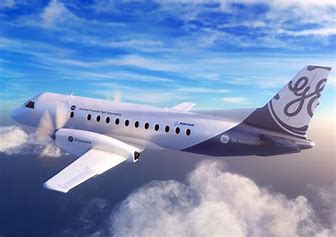The unit in the country serves more than 30 airlines around the world
04/03/2024

Facing a shortage of turbines in the market and long maintenance queues, the airline industry is grappling with a severe shortage of aircraft. This scenario has prompted GE Aerospace to invest in expanding its capacity in Brazil. GE Celma, located in Rio de Janeiro, is set to be expanded in 2025. “Our focus is now on expanding Três Rios,” H. Lawrence Culp Jr, the company’s global CEO, told Valor.
GE Aerospace will officially be launched to the market today as an independent company, following its separation from the conglomerate GE, which will now operate through three independent entities—GE Vernova (energy) and GE Healthcare (whose separation had already occurred). Mr. Culp, who previously served as president of GE and of GE Aerospace, will continue to lead the aerospace division.
In Brazil, the company has been operational for over 100 years—currently focused in Rio—and employs 3,500 people. The unit provides services to more than 30 airlines worldwide.
The operation reached the milestone of testing and overhauling 500 aero engines in 2023—no public target has been set for after the construction ends. The new facility is expected to be completed in the second quarter of 2025, adding 40,000 square meters of built area.
“We have begun the hiring process and expect to create around 600 jobs. This will enable us to better serve our clients, including Embraer,” said the executive. The partnership with the Brazilian manufacturer, lasting over 25 years, has been reinforced by the recent order of up to 133 E175 jets placed by American Airlines.
The company has an installed base of approximately 44,000 commercial engines and 26,000 military and defense engines worldwide. In 2023, it generated revenues of $32 billion, around 70% of which came from services.
The increase in capacity comes at a crucial time. The newest models (LEAP-1A and 1B engines, used in the Boeing 737 Max and Airbus A320neo) have achieved a reduction of more than 20% in emissions but have ended up requiring more maintenance.
“There is a recognition that challenges exist in the supply chain and not just with the engine manufacturers,” he said. In March, the company announced investments of more than $650 million worldwide.
*Por Cristian Favaro — São Paulo
Source: Valor International
